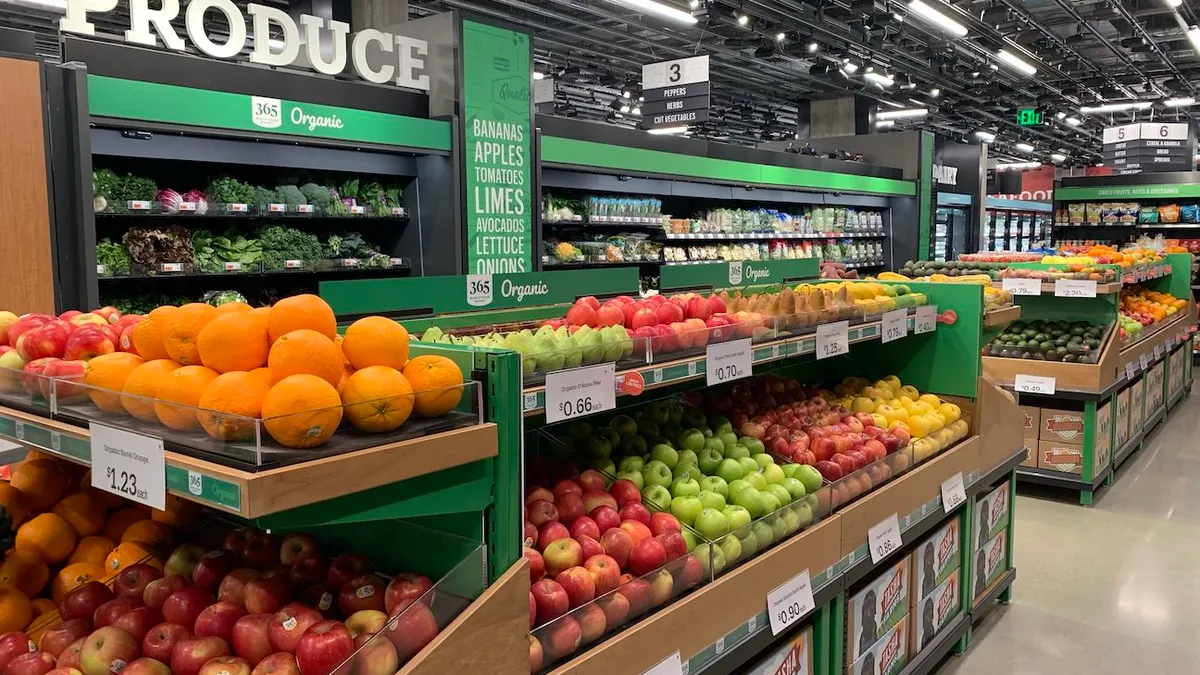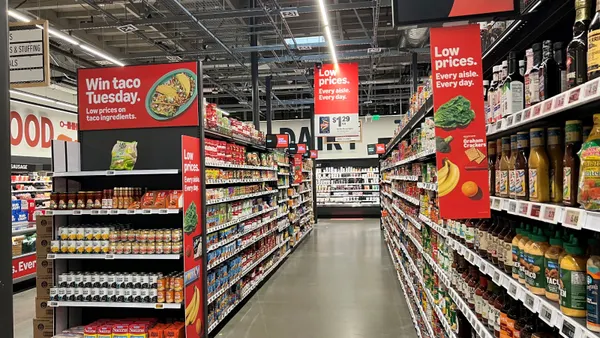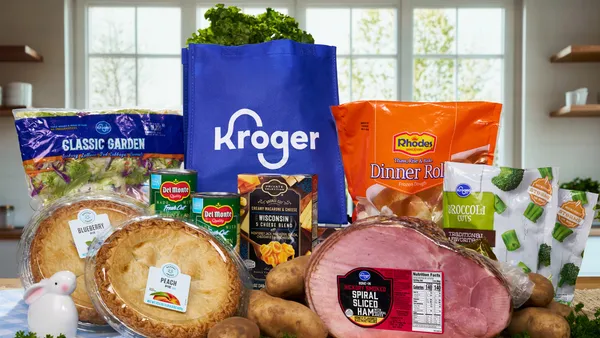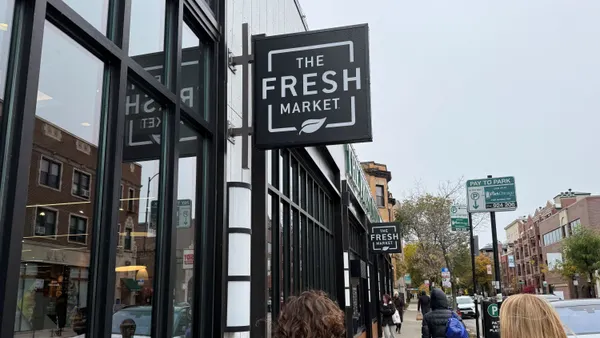Dive Brief:
- Sales in the grocery sector shot up 26.9% in March compared with the previous month as consumers flocked to stores to stock up on food and other items in response to the novel coronavirus outbreak, according to estimated data for the retail and food services sector from the Census Bureau. Grocery sales were up 29.3% over March 2019. Meanwhile, overall retail sales plummeted 8.7% compared with February and 6.2% year-over-year, the government said.
- Kroger's same-store sales excluding fuel in March were up 30% compared to February, according to the company's 8-K filing from April 1. Demand was especially high in the middle of the month, and remained elevated during the last week, with consumers eager to buy a wide range of packaged and fresh goods, the company said in its filing.
- Sales of household care items were up 63% during the four-week period that ended April 4 compared with the year-ago period, while sales in the meat and frozen food categories each rose almost 60%, according to figures from Nielsen. Dairy products recorded a 40% gain, produce sales jumped 24.2% and seafood notched a 14.2% increase in sales during the period on a year-over-year basis, the market research firm reported.
Dive Insight:
Even as it has spurred a sustained boom in grocery sales, the pandemic has brought uncertainty to an industry used to generally predictable buying patterns.
The enormous increase in demand has strained supply lines and given shoppers a front-row view of weaknesses in how supermarkets manage inventory. Meanwhile, grocers and their employees are waging a campaign to convince government officials to provide easier access to personal protective equipment and COVID-19 testing, which is highlighting the risks associated with shopping at and working in supermarkets.
In addition, grocers are facing a raft of unplanned expenses as they have shored up pay and benefits for workers, accelerated hiring, dealt with unprecedented demand from online shoppers and absorbed other costs stemming from the virus outbreak.
Kroger said in its SEC filing that it expected sales to be uneven during the remainder of 2020, and noted that it borrowed funds from a $1 billion line of credit on March 18 to preserve its “financial flexibility” despite its strong financial condition. “It is too early to speculate what will emerge as the ‘new normal’ in food consumption at home or what the impact on sales will be in future periods,” Kroger said.











